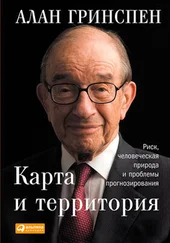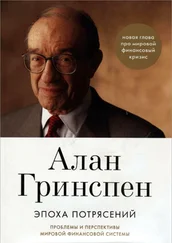Rick Wartzman, The End of Loyalty: The Rise and Fall of Good Jobs in America (New York: Public Affairs, 2017), 212–213.
Lindert, "Twentieth-Century Foreign Trade and Trade Policy," in The Twentieth Century, 419, 423.
Там же, 428.
Thomas McCraw, American Business Since 1920: How It Worked (Wheelan, IL: Harlan Davidson, 2000), 98–112.
Michael C. Jensen, "The Modern Industrial Revolution, Exit, and the Failure of Internal Control Systems," Journal of Finance 48, no. 3 (July 1993): 847–848, 851.
Anthony Mayo and Nitin Nohria, In Their Time: The Greatest Business Leaders of the Twentieth Century (Boston, MA: Harvard Business School Press, 2005), 259.
Wartzman, The End of Loyalty, 290.
Mayo and Nohria, In Their Time, 213.
Neal R. Peirce and Jerry Hagstrom, The Book of America: Inside Fifty States Today (New York: W. W. Norton, 1983), 258–259.
Carol Heim, "Structural Changes: Regional and Urban," in The Twentieth Century, vol. 3 of The Cambridge Economic History of the United States, 155.
Mayo and Nohria, In Their Time, 271–278.
Там же, 279.
Daniel Yergin and Joseph Stanislaw, The Commanding Heights: The Battle Between Government and the Marketpl ace That Is Remaking the Modern World (New York: Simon & Schuster, 1998), 334.
William Leuchtenburg, The American President: From Teddy Roosevelt to Bill Clinton (Oxford: Oxford University Press, 2015), 592.
Anthony Mayo and Nitin Nohria, In Their Time: The Greatest Business Leaders of the Twentieth Century (Boston, MA: Harvard Business School Press, 2005), 292.
Naomi Lamoreaux, ed., "Business Organization," in Economic Structure and Performance, vol. 3 of Historical Statistics of the United States: Millennial Edition, ed. Susan B. Carter et al. (New York: Cambridge University Press, 2006), 491.
Mayo and Nohria, In Their Time, 307.
Gerald F. Davis, Managed by the Markets: How Finance ReShaped America (Oxford: Oxford University Press, 2009), 21.
Adrian Wooldridge, Masters of Management: How the Business Gurus and Their Ideas Have Ch anged the World – for Better and for Worse (New York: HarperBusiness, 2011), 30.
Michael Jensen and William H. Meckling, "Theory of the Firm: Managerial Behavior, Agency Costs and Ownership Structure," Journal of Financial Economics 3, no. 4 (October 1976): 305–360.
Michael Schuman, The Miracle: The Epic Story of Asia's Quest for Wealth (New York: Harper Collins, 2009), 181–182; Wooldridge, Masters of Management, 432.
Walter Isaacson, The Innovators: How a Group of Hackers, Geniuses, and Geeks Created the Di gital Revolution (New York: Simon & Schuster, 2014), 263.
Thomas McCraw, American Business Since 1920: How It Worked (Wheelan, IL: Harlan Davidson, 2000), 238–239.
Robert J. Gordon, The Rise and Fall of American Growth: The U. S. Standard of Living Since the Ci vil War (Princeton, NJ: Princeton University Press, 2016), 506.
Jerome Karabel, The Chosen: The Hidden History of Admission and Exclusion at Harvard, Yale a nd Princeton (New York: Houghton Mifflin, 2005), 444.
Alan Greenspan, The Age of Turbulence: Adventures in a New World (London: Allen Lane, 2007), 169 (Гринспен А. Эпоха потрясений. Проблемы и перспективы мировой финансовой системы – М.: Юнайтед пресс, Альпина Паблишер, 2017).
Sebastian Mallaby, The Man Who Knew: The Life and Times of Alan Greenspan (New York: Penguin Press, 2016), 594.
Douglas A. Irwin, Clashing over Commerce: A History of U. S. Trade Policy (Chicago: University of Chicago Press, 2017), 666–667.
Alan Greenspan, The Map and the Territory 2.0: Risk, Human Nature, and the Future of Forec asting (New York: Penguin Press, 2013), 38.
Daniel Yergin and Joseph Stanislaw, The Commanding Heights: The Battle Between Government and the Marketpl ace That Is Remaking the Modern World (New York: Simon & Schuster, 1998), 168.
Mallaby, The Man Who Knew, 617.
Там же, 466.
See Carmen M. Reinhardt and Kenneth S. Rogoff, This Time Is Different: Eight Centuries of Financial Folly (Princeton, NJ: Princeton University Press, 2011).
Deirdre Nansen McCloskey, Bourgeois Equality: How Ideas, Not Capital or Institutions, Enriched the World (Chicago: University of Chicago Press, 2016), 500.
Tyler Cowen, The Complacent Class: The Self-Defeating Quest for the American Dream (New York: St. Martin's Press, 2017), 25. Книга Коуэна была бесценным источником информации для этой главы.
Oscar Handlin and Lilian Handlin, Liberty in Expansion 1760–1850 (New York: Harper & Row, 1989), 13.
See Patrick Foulis, "The Sticky Superpower", Economist, October 3, 2016.
Chang-Tai Hsieh and Enrico Moretti, "Why Do Cities Matter? Local Growth and Aggregate Growth", NBER Working Paper. No. 21154, National Bureau of Economic Research, May 2015; Cowen, The Complacent Class, 8.
Raj Chetty et al., "The Fading American Dream: Trends in Absolute Income Mobility Since 1940", NBER Working Paper. No. 22910, National Bureau of Economic Research, March 2017.
Handlin and Handlin, Liberty in Expansion, 141.
Philip K. Howard, The Rule of Nobody: Saving America from Dead Laws and Broken Government (New York: W. W. Norton, 2014), 33.
Thomas Friedman and Michael Mandelbaum, "That Used to Be Us": What Went Wrong with America and How It Can Co me Back (New York: Little, Brown, 2011), 26.
Howard, The Rule of Nobody, 13.
Robert J. Gordon, The Rise and Fall of American Growth: The U. S. Standard of Living Since the Ci vil War (Princeton, NJ: Princeton University Press, 2016), 585.
"Too Much of a Good Thing", Economist, March 26, 2016.
Adrian Wooldridge, "The Rise of the Superstars", Economist, Special Report, September 17, 2016.
Dan Andrews, Chiara Criscuolo, and Peter Gal, Frontier Firms, Technology Diffusion and Public Policy: Micro Evidence from OECD Countries, OECD Productivity Working Paper, 2015.
Gordon, The Rise and Fall of American Growth, 629.
Anne Case and Angus Deaton, "Rising Morbidity and Mortality in Mid-Life Among White Non-Hispanic Americans in the 21st Century", Proceedings of the National Academy of the United States 112, no. 49; Anne Case and Angus Deaton, "Mortality and Morbidity in the 21st Century", Brookings Institution, Brookings Paper on Economic Activity, March 23, 2017.
Читать дальше
Конец ознакомительного отрывка
Купить книгу












